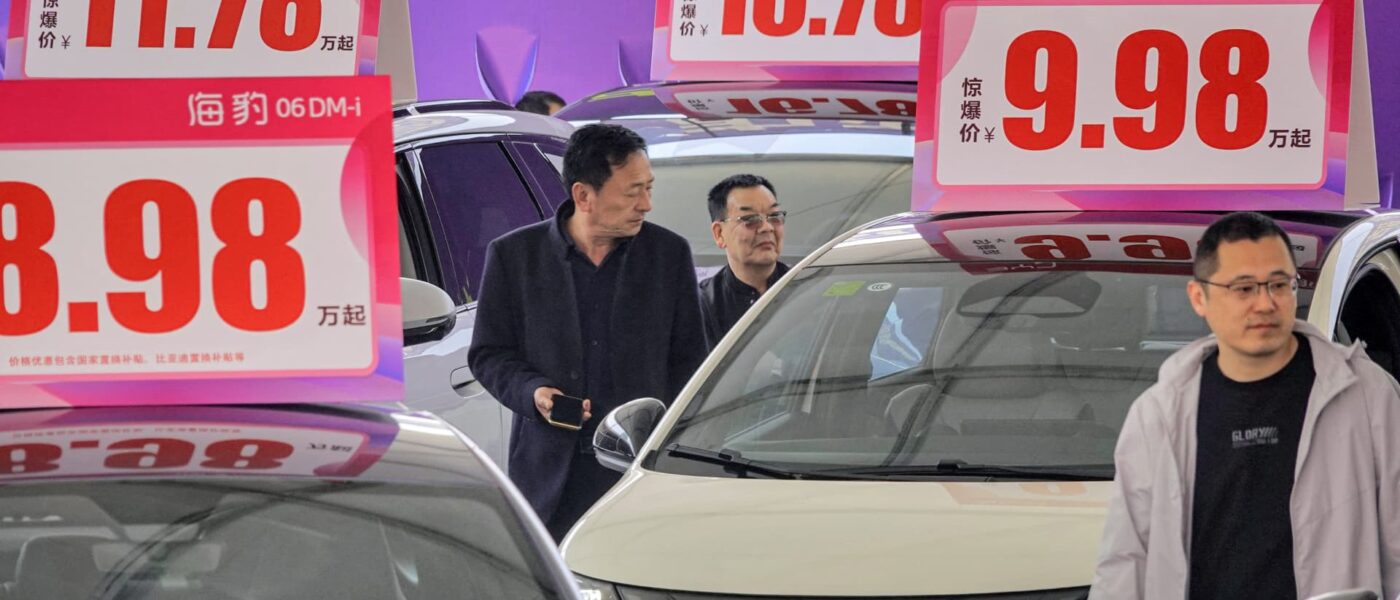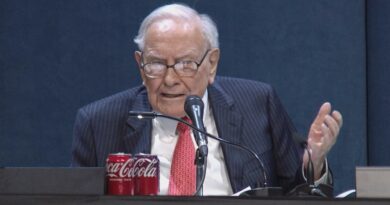China’s EV price war is heating up. What’s behind the big discounts?
Customers look at BYD electric cars at an auto show in Yantai, in eastern China’s Shandong province on April 10, 2025.
Stringer | Afp | Getty Images
BEIJING — Competition in China’s electric car market just got fiercer with consequences for the domestic economy and even the global auto market.
Industry giant BYD last week announced a slew of discounts — some of nearly 30% or more — across several of its lower-end battery-only and hybrid models. The budget-friendly Seagull compact car saw its price drop to 55,800 yuan ($7,750).
Other major Chinese automakers have begun following suit.
“BYD’s action this time has made the industry rather nervous,” Zhong Shi, an analyst with the China Automobile Dealers Association, said in Mandarin, translated by CNBC.
“The industry is in [a state of] relatively large shock,” he said, noting smaller automakers are now more worried about their ability to compete.
The industry has been a rare bright spot in an economy that has been seeing slower growth and lackluster consumer demand. Part of Beijing’s latest attempt to spur consumption included subsidies for new energy vehicles, a category that includes battery-only and hybrid-powered cars.
“The latest car price competition underscores how supply-demand imbalance continues to fuel deflation,” Morgan Stanley’s Chief China Economist Robin Xing said in a report Wednesday.
“There is growing rhetoric about the need for rebalancing [to more consumption], but recent developments suggest the old supply-driven model remains intact,” he said. “Thus, reflation is likely to remain elusive.”
China’s electric car market has already been in a price war for the last two years, partly fueled by Tesla.
But this time, traditional automakers, including state-owned ones, are feeling significant heat as the share of new energy vehicles has come to account for about half of new passenger cars sold in China.
Last week, Great Wall Motors Chairman Wei Jianjun warned of an “Evergrande” in China’s auto industry that had yet to explode, comparing the fast-growing EV industry to the country’s bloated real estate sector. The outspoken private sector autos executive was speaking to Chinese media outlet Sina in an interview posted on May 23.
Once China’s real estate giant, Evergrande defaulted on its debt in late 2021 as the property market slumped after Beijing cracked down on the company’s high debt levels. Demand for homes also fell following tighter government regulations, leaving the developer struggling to finance the remaining construction of pre-sold units.
As Chinese media scrutiny on automakers’ financial situation rose, BYD on Wednesday refuted reports that it excessively pressured one of its dealers on cash flow. The dealer, Jinan Qiansheng in the eastern province of Shandong, did not immediately respond to a CNBC request for comment. BYD referred CNBC to its statement to Chinese media.
In the early years of China’s state-supported efforts to become a global leader in the emerging electric…






